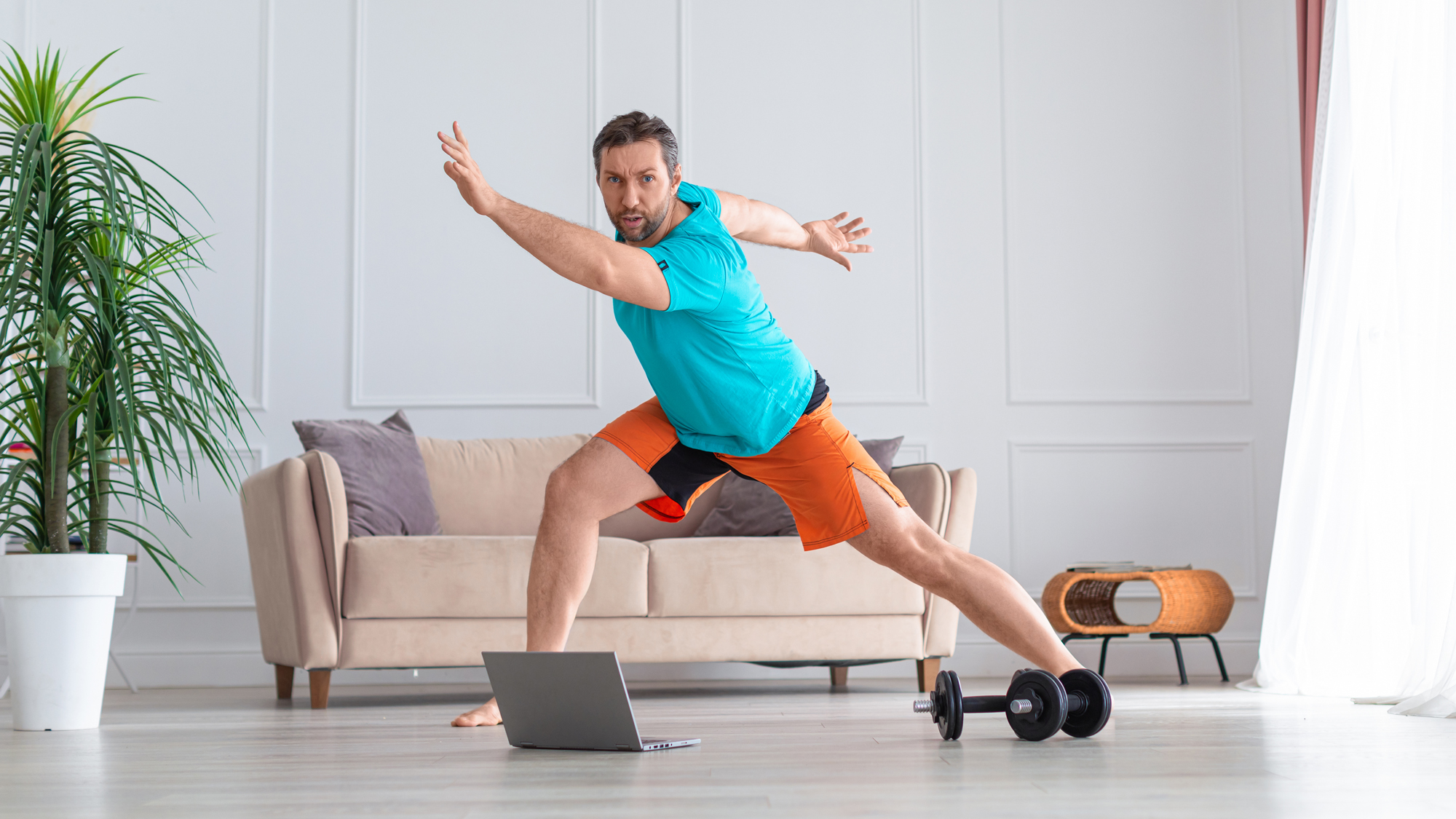Want to lose weight? A morning HIIT workout leads to all-day calorie burn, says study
High intensity training raises your metabolism for sustainable weight loss


All exercise is good, but some are more time-efficient than others. High-intensity workouts pack a lot into 20 or 30 minutes, raise your heart rate, and burn fat.
Now, researchers have found the reason that intense exercise is effective for weight loss is that it increases your body's oxygen consumption. It doesn't matter whether you're using the best kettlebells, best adjustable dumbbells, or no kit at all—if the workout is fast and furious, your body will need more oxygen.
This is what makes High-Intensity Interval Training (HIIT) ideal for quick, early morning exercise. The aim is to work as hard as possible for up to 45 seconds, take a short break, then progress on to the next move.
While you'll likely end the session feeling like you've had a good workout, this short blast of activity changes how your body uses oxygen throughout the day, according to research published in the Journal of Sports Science.
If you want to set yourself up for the day ahead, you can get some early morning training in using this 20-minute low-impact HIIT workout from fitness YouTuber Maddie Lymburner, popularly known as MadFit.
Although some sessions include weights like kettlebells or dumbbells, many of these routines (like this one, for example) are equipment-free, so all you need is a set of the best cross training shoes for support when quickly switching between moves.
As you'll find during this short workout, intense exercise makes you breathe heavier and faster to deliver more oxygen to your muscles. When you stop training, there's a brief recovery period where your breathing returns to a more regular pace.
Get the Fit&Well Newsletter
Start your week with achievable workout ideas, health tips and wellbeing advice in your inbox.
Watch MadFit's low-impact full-body HIIT workout
But after intense HIIT workouts, the Journal of Sports Science study found that your body continues to need higher amounts of oxygen throughout the rest of the day. This is known as post-exercise oxygen consumption (EPOC).
As the researchers noted, the evidence suggests "an exponential relationship between exercise intensity and the magnitude of the EPOC for specific exercise durations."
So, high-intensity training increases post-exercise oxygen consumption, but why does that matter? According to one review, this extra oxygen intake helps cool your body down and reduces your heart rate back to normal levels.
Recovering from your intense workout takes oxygen, but the process also burns energy. This is why high-intensity exercise increases your metabolism, the rate at which your body burns calories.
It's also why routines like this HIIT workout for fat loss are an effective way to burn fat and drop pounds. However, intense sessions aren't for everyone, but if weight loss is your goal, you do have other options.
The best exercises for weight loss combine equipment-free moves with weighted exercises using kettlebells to increase your heart rate, build strength, and burn fat for sustainable weight loss.

James is a London-based journalist and Fitness Editor at Fit&Well. He has over five years experience in fitness tech, including time spent as the Buyer’s Guide Editor and Staff Writer at technology publication MakeUseOf. In 2014 he was diagnosed with a chronic health condition, which spurred his interest in health, fitness, and lifestyle management.
In the years since, he has become a devoted meditator, experimented with workout styles and exercises, and used various gadgets to monitor his health. In recent times, James has been absorbed by the intersection between mental health, fitness, sustainability, and environmentalism. When not concerning himself with health and technology, James can be found excitedly checking out each week’s New Music Friday releases.
-
 I do these two things every day to stay fit and healthy, says the newest star trainer on Chris Hemsworth's fitness app
I do these two things every day to stay fit and healthy, says the newest star trainer on Chris Hemsworth's fitness appHere's how Centr's Korey Rowe trains for longevity
By Sam Rider Published
-
 I thought sports weren't for me, until I realised they're a game-changer for ticking off cardio
I thought sports weren't for me, until I realised they're a game-changer for ticking off cardioI swapped HIIT and running for tennis—and I've never felt better
By Alice Porter Published